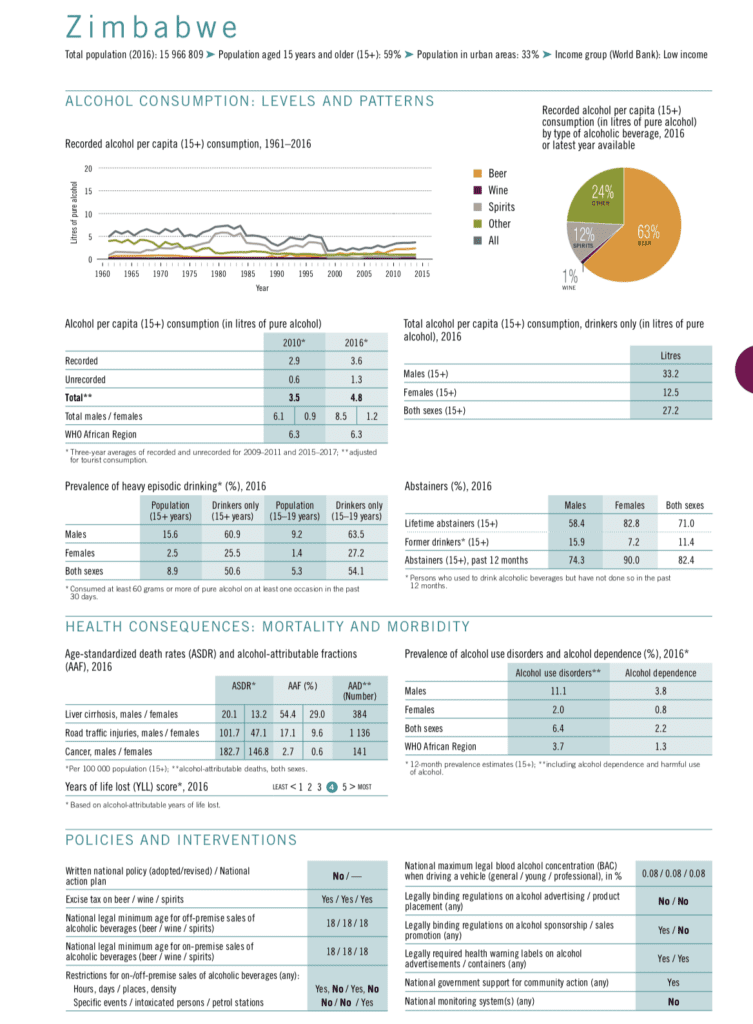Zimbabwe banned alcohol sales to curb the spread of the COVID-19 pandemic in the country. The ban was active till recently when alcohol outlets were reopened. Nevertheless, Shabeen owners known as Shabeen Queens have been defying the alcohol sales ban in the country and have employed additional unlawful practices to keep operations running, such as bribing officials and even selling illicit alcohol.
Even when the ban was active, Shabeens were open. These are usually poorly aerated backrooms where people are locked in to consume alcohol for ‘security’ reasons, fearing police raids – in other words they are breeding grounds for COVID-19. No preventive measures are adhered to inside these places and the same bottle of beer is often being passed around between multiple consumers. People consume alcohol in large amounts in Shabeens often until they loose consciousness.
The Shabeen owners or the Shabeen Queens have adapted quickly to the pandemic. During the ban they bribed officials in charge of the raids so that their outlets could continue operating. Due to rising unemployment during lockdown fewer people could afford alcohol. Therefore the Shabeens started to stock up on high potent illicit alcohol. These illicit alcohol went for as cheap as US$0.50 and are sold to heavy alcohol users who are suffering in poverty.
The high consumption of alcohol driven by these Shabeens has led to an increase in gender-based violence in Zimbabwe, according to local report. Men consume alcohol heavily and use it as an excuse for domestic and gender-based violence.
Divorce rates have shot up in the country. Alarmingly, at least one woman is murdered every week by their spouse.
The availability of alcohol during lockdown increases episodes of GBV occurrence and severity,” said Tungamirai Zimonte, Movendi International Board Member and Southern African Alcohol Policy Alliance Zimbabwe coordinator, as per Setimar.
Victims are often locked in with their abuser without access to support services or help. When the abuser consumes alcohol at home the victim is at an increased risk of abuse.”
Spending the little bit of money that is available on alcohol further exacerbates the dire health and economic situation of vulnerable households.
Older people and women in particular will face increased risk as they struggle to feed families,” added Mr. Zimonte.
Tungamirai Zimonte, Movendi International Board Member and Southern African Alcohol Policy Alliance Zimbabwe coordinator
Alcohol harm in Zimbabwe
As the World Health Organization (WHO) reports, Zimbabwe already has a heavy alcohol burden. Zimbabwe’s per capita alcohol consumption shows a growing trend since 2010. Over half (54.1%) of the alcohol using youth between 15 to 19 years in Zimbabwe engage in binge alcohol use. Alcohol harm is pervasive, despite a clear majority of all people above the age of 15 living free from alcohol in the past year (82.4%).

Alcohol use disorders and alcohol dependence are both higher for Zimbabwean men than the African regional average . The country is ranked at the higher end for years of life lost due to alcohol.
The Southern African Alcohol Policy Alliance Zimbabwe, supports the government’s temporary ban on the distribution and sale of alcohol in the interest of containing the spread of COVID-19. They also call for a speedy review and adoption of the draft national alcohol policy and its enactment into law to tackle alcohol harm, including gender based violence.
